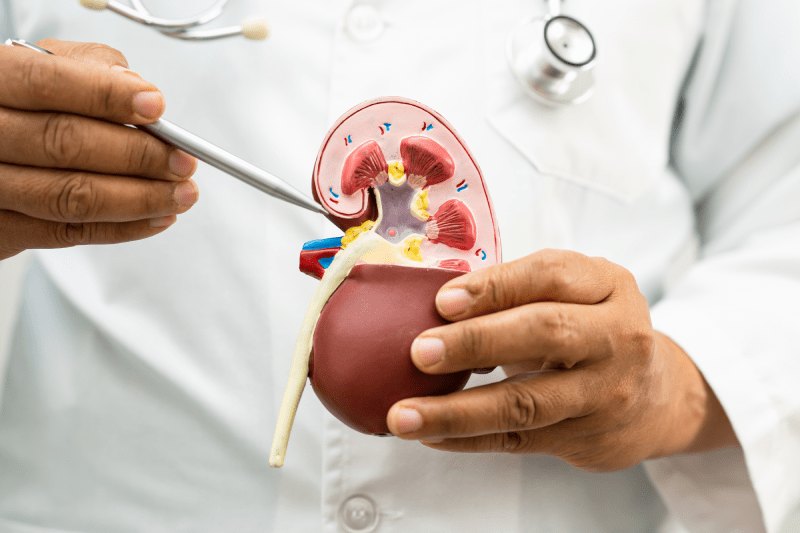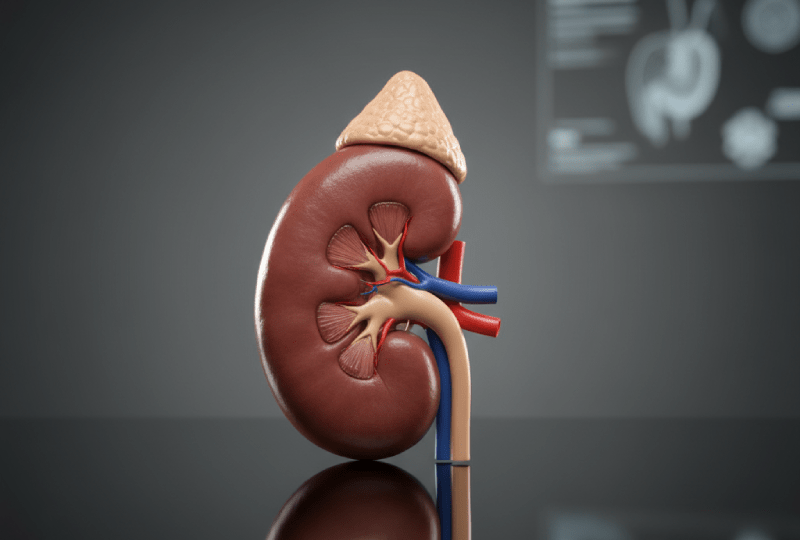What Factors Should Be Considered When Choosing the Most Affordable Country?
When choosing the most affordable country for a kidney transplant, it’s crucial to consider not only the cost of the surgery but also the level of medical quality, the experience of the surgeons, and post-operative care.
A low-cost option could lead to additional expenses or health problems in the long run. The country’s healthcare system standards, legal regulations, and ethical rules, as well as travel, accommodation, and living expenses, are also an important part of the total budget. When all these factors are evaluated holistically, you can find the truly “most affordable” option.
Why Do Kidney Transplant Costs Vary So Much from Country to Country?
Differences in kidney transplant costs are based on many factors. The country’s general cost of living, exchange rates, medical staff salaries, hospital infrastructure, and the prices of medical equipment used are the main reasons for these differences. For example, high costs in Western countries result from high staff salaries and insurance systems, while in countries like Turkey or India, these cost items are lower. This allows for the provision of a more affordable service. However, this price difference does not mean a drop in quality.
Why is Turkey a Popular Option for Kidney Transplants?
Turkey is a popular destination in the international arena for kidney transplants due to its expert surgeons, modern hospital infrastructure, and high success rates. Hospitals in Turkey have proven their quality of service by receiving accreditation from international organizations such as JCI (Joint Commission International). In addition, surgery costs are more economical than in Europe and the USA. These factors make Turkey an attractive option for patients seeking high-quality treatment at a more affordable price.
Is India an Economical Alternative for Kidney Transplants?
India is one of the world’s leading centers in medical tourism, including kidney transplantation. The low general cost of living and business expenses in the country ensures that surgery prices are extremely competitive. Some hospitals in India have advanced technology and offer special services to international patients. However, it is of great importance to conduct careful research on healthcare systems and hygiene standards and to prefer accredited, reliable hospitals.
Which Country Has the Most Affordable Kidney Transplant Cost?
The “most affordable” country varies according to the patient’s specific situation and preferences. In general, countries such as India, Turkey, Pakistan, Iran, and Thailand offer much lower costs compared to Western countries. However, prices and the quality of service provided can vary among these countries. When researching prices, the most accurate approach is to make a comparison by considering not only the cost of the surgery but also all expenses such as travel, accommodation, medication, and additional treatments.
Is There an Age Limit for a Transplant?
There is no definitive age limit for a kidney transplant. What is important is the patient’s overall health status and their capacity for post-operative recovery. The transplant team takes into account the patient’s biological age and possible additional health problems rather than their chronological age. Therefore, both young and elderly patients can be evaluated for a transplant. The decision is made by a multidisciplinary board as a result of a comprehensive evaluation specific to the patient.

Who Covers the Donor’s Surgical Costs?
In a kidney transplant surgery, the entire cost of the donor’s surgery and hospital expenses is generally covered by the recipient. This is a legal and ethical requirement and aims to prevent organ trafficking. These costs are an important item added to the recipient’s total treatment budget and should be clearly defined before the surgery. In some cases, the donor’s insurance may partially cover certain costs, but this is rarely the case.
What is the Cost of Post-Transplant Medications?
The most important medications that patients must use for life after a kidney transplant are immunosuppressive (immune system suppressing) drugs. The cost of these drugs can vary depending on the country and the brand used. These medications are of vital importance to prevent the rejection of the transplanted kidney. Patients coming from abroad should research the cost of these medications in their own country and whether they are covered by insurance in advance, as this is a long-term and important expense.
Are Medical Tourism Agencies Reliable?
Medical tourism agencies can be useful in guiding patients coming from abroad and facilitating the entire process. These agencies offer services such as hospital selection, appointment setting, travel planning, and accommodation. However, before working with an agency, it is important to carefully research the agency’s references, experience, and the quality of the hospitals it works with. A reliable agency can make the process more transparent and less stressful.
What Is the Best Donor Source for a Transplant?
Live donor transplantation is the best option in terms of organ availability and post-operative success rates. A live donor is usually a close family member or relative of the patient. Blood type and tissue compatibility are the most important factors in donor selection. The donor’s health status and psychological suitability for the transplant are also meticulously evaluated. There is no waiting list issue in live donor transplants.
Is There a Waiting List for a Transplant?
In live donor transplants, there is no waiting list because the donor comes with the patient. However, if a cadaveric transplant is to be performed, there is a waiting list in every country depending on the availability of the donor organ. This list is arranged according to criteria such as medical urgency and compatibility. The waiting period can vary from country to country and can be long. Therefore, a live donor transplant is generally a faster and preferred option.
What Do Detailed Pre-Transplant Tests Include?
Pre-transplant evaluation is performed to determine whether the patient and donor are suitable for surgery. This process includes blood tests (blood type, tissue typing), radiological imaging (ultrasound, MRI), cardiological tests, psychological evaluation, and infection screenings. These tests are of vital importance to minimize possible risks and maximize the chances of transplant success. The completion of the tests can take several days, and the results are reviewed by a multidisciplinary board.
How Long Does the Post-Transplant Recovery Process Take?
The post-transplant recovery process depends on the patient’s overall health status and the success of the surgery. Patients generally stay in the hospital for 1 to 2 weeks after the surgery and can return to their normal lives within a few months. The full recovery process can take several months. During this process, it is very important for the patient to use immune system suppressing drugs and to go for regular doctor check-ups.
What Are the Hidden Costs That Can Occur During the Kidney Transplant Process?
Hidden costs that may arise during the kidney transplant process are one of the issues that require the most attention. These costs include additional expenses that are not included in the initial price quote but may arise during the treatment process. For example, additional tests, treatment of unexpected complications, extended stay in intensive care, or extra medication expenses can be counted. To avoid such surprises, it is essential to get a written and transparent price quote that includes all expenses from the hospital.
Are Visa and Travel Insurance Required for a Transplant Abroad?
Yes, patients and their companions traveling abroad for a kidney transplant generally have to cover expenses such as visa and travel insurance themselves. The visa requirement depends on the agreements between the patient’s home country and the country where the treatment will take place. Travel insurance provides financial protection in case of unexpected emergencies or a prolonged treatment period and offers great convenience.
Which Kidney Transplant Surgeons Should Be Preferred?
A kidney transplant is a complex surgery that requires a high level of expertise. Therefore, the choice of surgeon is of vital importance. It is important that the preferred surgeon has many years of experience in the field of kidney transplantation, offers high success rates, and is internationally recognized. Patients can make the most accurate decision by researching the surgeon’s academic background, the number of transplants they have performed, and patient references.
How Are Post-Operative Care and Check-ups Conducted?
Post-operative care and regular check-ups are of vital importance for transplant success. Patients who have a transplant abroad usually stay in the hospital or near the hospital for the first few weeks of treatment. During this period, doctors closely monitor the patient’s condition. After returning to their home country, the patient continues their check-ups in collaboration with a nephrology specialist in their own country. In this process, it is important for the transplant center to maintain communication with the patient.
How Is the Health and Safety of the Donor Ensured?
The donor’s health and safety are the most important priority of the transplant process. The donor undergoes a comprehensive health screening before the surgery and is also psychologically evaluated. It is confirmed that the donor is donating their organ voluntarily. All necessary measures are taken to ensure that the donor lives a healthy life with the remaining kidney. The donor’s health and safety are meticulously monitored throughout and after the transplant process.
Are Cancer Screening Tests Performed During the Transplant?
Yes, both recipient and donor candidates for a kidney transplant are required to undergo comprehensive cancer screening tests. These tests are performed to reveal the presence of a hidden cancer in the patient or donor. The presence of cancerous cells can cause the transplant procedure to be stopped or postponed. This is an important protocol applied to protect the health of the patient and the donor.
Which Hospitals Are Considered Reliable for Kidney Transplants?
When choosing a reliable hospital for a kidney transplant, attention should be paid to international accreditations (such as JCI), the experience of the surgeons, the hospital’s technological infrastructure, and success rates. University hospitals and private transplant centers in large cities usually stand out in this field. Examining patient reviews and references of hospitals contributes greatly to the decision-making process.
What Are the Transplant Legal Regulations in Different Countries?
Legal regulations regarding kidney transplantation vary greatly from country to country. In some countries, only live donor transplants can be performed, while in others, cadaveric transplants are also common. Organ trafficking is illegal in all countries, and strict ethical rules are applied in this regard. Patients need to research the legal regulations and the necessary documents for a transplant in the country where they plan to get treatment in advance.
Is Blood Type Compatibility Required Between Donor and Recipient?
In traditional kidney transplants, blood type compatibility between the donor and recipient is usually a requirement. However, with the developing medical technologies today, blood type incompatible transplants can also be successfully performed. This procedure requires a special preparation process for the donor and recipient before the surgery and may result in additional costs. This option is a great source of hope for patients who have difficulty finding a suitable blood type donor.
Is There an Interpretation Service During the Transplant Process?
Many hospitals that serve international patients offer interpretation services. This service allows patients to communicate better with their doctors and medical staff. The cost of interpretation services may vary depending on the hospital’s policy; some hospitals include it in the package price, while others may charge an additional fee. This service is of vital importance, especially for the correct understanding of complex medical terms.
How Are the Costs of Post-Transplant Complications Covered?
The cost of complications that may arise after a transplant varies depending on the situation. If the complication occurs immediately after the surgery, during the hospital stay, these costs are usually included in the initial package price. However, the cost of complications that arise after the patient is discharged and require additional treatment must be covered by the patient’s own health insurance or budget. Therefore, having comprehensive health insurance is of great importance.
How Can I Find the Best Surgeon?
To find the best surgeon, a comprehensive research is required. It is important to examine the surgeon’s career history, the hospital they work at, their area of expertise, and the number of transplants they have performed before. In addition, surgeons who have presented at international medical conferences, have scientific articles, and have positive patient references are a reliable indicator. Medical tourism agencies or the international patient units of hospitals can help you with this.
What Are the Living and Accommodation Expenses?
Patients who will have a kidney transplant abroad should plan for long-term accommodation and living expenses in addition to the surgery cost. The transplant process can take several weeks or even months. During this period, the accommodation, food, and local transportation expenses of the patient and their companion constitute a significant part of the total budget. These costs vary according to the country’s general cost of living.

What Happens if the Transplant Process Takes Longer?
The transplant process can be prolonged due to unexpected situations. In these cases, the hospital stay may be extended, and additional tests or treatments may be required. These situations can significantly affect the budget. Therefore, it is a smart approach to allocate an emergency fund of 10% to 20% in the initial planning. In addition, it is important to check in advance whether travel insurance covers such situations.
What Are the Advantages of a Live Donor Transplant?
The biggest advantages of a live donor transplant are that there is no waiting period and the surgery can be planned. Kidneys taken from a live donor generally start working faster, and long-term success rates are higher than cadaveric transplants. In addition, the risk of post-operative complications is lower because the donor is known to be healthy.
Is Physical Therapy Necessary After a Transplant?
It is a common situation for patients to need physical therapy after a kidney transplant. A prolonged hospital stay and surgery can lead to a decrease in muscle strength and general mobility. Physical therapy sessions aim to help the patient return to their daily activities in a short time and accelerate their overall recovery. The cost of this treatment can be included in the treatment package or specified as an additional expense.
Why Is a Companion Needed for a Transplant?
Patients who have a kidney transplant surgery need a companion for support during the recovery process. The companion helps the patient feel better physically and psychologically, supports them in meeting their daily needs, and is a great source of morale during the post-operative process. The companion’s accommodation and living expenses should also be included in the budget planning.
Why Are the Success Rates of the Transplant Center Important?
The success rates of the transplant center are the most important indicator of the hospital and surgeon’s quality. Success rates include the number of patients where the transplanted kidney is still working after one, five, or ten years and patient survival rates. A center with high success rates is a safer option for patients. It is the most accurate approach to transparently request these rates from the hospital.
What Happens if There Is an Incompatibility with the Donor?
In case of blood type or tissue incompatibility with the donor, there are some alternatives for patients. Blood type incompatible transplants have been made possible with special medications and procedures. Another option is donor pool programs. In these programs, incompatible donor-recipient pairs are cross-matched with another incompatible pair to find a suitable kidney for both patients.
Why Is a Pre-Transplant Psychological Evaluation Important?
The kidney transplant process can be physically as well as psychologically challenging for both the recipient and the donor. Therefore, a psychological evaluation is performed to confirm that both parties are ready for the transplant and can emotionally manage the process. Evaluating the patient’s resilience to the difficulties that post-transplant life will bring is also part of this process.
Is Transplant Possible for Cancer Patients?
The decision for a kidney transplant in cancer patients depends on many factors such as the type, stage, and treatment of the cancer. Generally, a transplant can be performed in cases where the patient has completely recovered from cancer and the risk of recurrence is low. This is a complex issue that is evaluated in detail for each patient.
How to Avoid Organ Trafficking?
Organ trafficking is illegal internationally and causes serious ethical problems. Reliable and accredited hospitals demand strict audits and documents to confirm that the donor is a volunteer and is not donating an organ in exchange for any financial gain. The best way is to act through a transparent and reliable health center or medical tourism agency.



